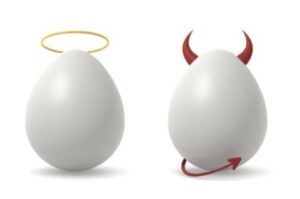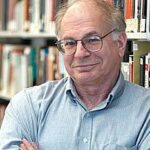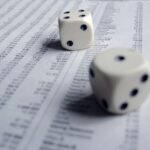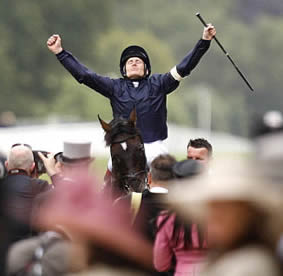 Cognitive biases are psychological tendencies that cause the human brain to draw incorrect conclusions. Such biases are thought to be a form of “cognitive shortcut”, often based upon rules of thumb, and include errors in statistical judgment, social attribution, and memory. These biases are a common outcome of human thought, and often drastically skew the reliability of anecdotal and legal evidence. The phenomenon is studied in cognitive science and social psychology.
Cognitive biases are psychological tendencies that cause the human brain to draw incorrect conclusions. Such biases are thought to be a form of “cognitive shortcut”, often based upon rules of thumb, and include errors in statistical judgment, social attribution, and memory. These biases are a common outcome of human thought, and often drastically skew the reliability of anecdotal and legal evidence. The phenomenon is studied in cognitive science and social psychology.
 The notion of cognitive biases was introduced by Amos Tversky and Daniel Kahneman in 1972 and grew out of their experience of people’s innumeracy, or inability to reason intuitively with the greater orders of magnitude. They and their colleagues demonstrated several replicable ways in which human judgments and decisions differ from rational choice theory. They explained these differences in terms of heuristics; rules which are simple for the brain to compute but introduce systematic errors. For instance the availability heuristic, when the ease with which something comes to mind is used to indicate how often (or how recently) it has been encountered. These experiments grew into the heuristics and biases research program which spread beyond academic psychology into other disciplines including medicine and political science. It was a major factor in the emergence of behavioral economics, earning Kahneman a Nobel Prize in 2002. Tversky and Kahneman developed prospect theory as a more realistic alternative to rational choice theory.
The notion of cognitive biases was introduced by Amos Tversky and Daniel Kahneman in 1972 and grew out of their experience of people’s innumeracy, or inability to reason intuitively with the greater orders of magnitude. They and their colleagues demonstrated several replicable ways in which human judgments and decisions differ from rational choice theory. They explained these differences in terms of heuristics; rules which are simple for the brain to compute but introduce systematic errors. For instance the availability heuristic, when the ease with which something comes to mind is used to indicate how often (or how recently) it has been encountered. These experiments grew into the heuristics and biases research program which spread beyond academic psychology into other disciplines including medicine and political science. It was a major factor in the emergence of behavioral economics, earning Kahneman a Nobel Prize in 2002. Tversky and Kahneman developed prospect theory as a more realistic alternative to rational choice theory.
 Contrary to standard assumptions made in economics and other social sciences, the psychological carriers of value are gains and losses, rather than anticipated final states of wealth, and people’s attitudes towards risk tend to shift from risk aversion in the face of gains to risk seeking for losses (Kahneman & Tversky, 1979). In addition, people are highly loss averse (the loss associated with giving up a good can be substantially greater than the utility associated with obtaining it; Tversky & Kahneman, 1991).
Contrary to standard assumptions made in economics and other social sciences, the psychological carriers of value are gains and losses, rather than anticipated final states of wealth, and people’s attitudes towards risk tend to shift from risk aversion in the face of gains to risk seeking for losses (Kahneman & Tversky, 1979). In addition, people are highly loss averse (the loss associated with giving up a good can be substantially greater than the utility associated with obtaining it; Tversky & Kahneman, 1991).
This, in turn, can cause a general reluctance to depart from the status quo, because things that need to be renounced loom larger than those potentially gained (Knetsch, 1989, Samuelson & Zeckhauser, 1988).
Contrary to standard assumptions of fungibility, people compartmentalize wealth and spending into distinct budget categories, such as savings, rent, and entertainment, and into separate mental accounts, such as current income, assets, and future income (Thaler, 1985; 1992). Typically, people exhibit different degrees of willingness to spend from these accounts; for example, the marginal propensity to consume (MPC) from one’s current income is very high compared, for example, to one’s current assets (where MPC is intermediate), and to future income (where it is low). This yields consumption patterns that are overly dependent on current income, with people willing to save and borrow (often at a higher interest rate) at the same time (Ausubel, 1991).
People’s tendency to focus on local decision contexts is related also to familiar problems having to do with procrastination, planning and self-control. In the somewhat metaphorical style of Thomas Schelling (1984), the self who, the evening before, intends to get up and exercise early the following morning is in conflict with the self who, early in the morning, much prefers to stay in bed.
Similarly, the person who, upon cursory inspection of her “open” calendar, agrees to deliver a final project, or make a payment, by a specified date often fails to anticipate the variety of factors that, between now and the deadline, will likely interfere.
As in other areas, here, too, minor contextual nuances can make a difference. The self who wants to exercise puts the alarm clock across the room from the self who will prefer to stay in bed, and the self who commits to a deadline may choose a variety of effective devices (including self-imposed penalties or the avoidance of distraction) to help abide by the committed date (Schelling, 1984)

